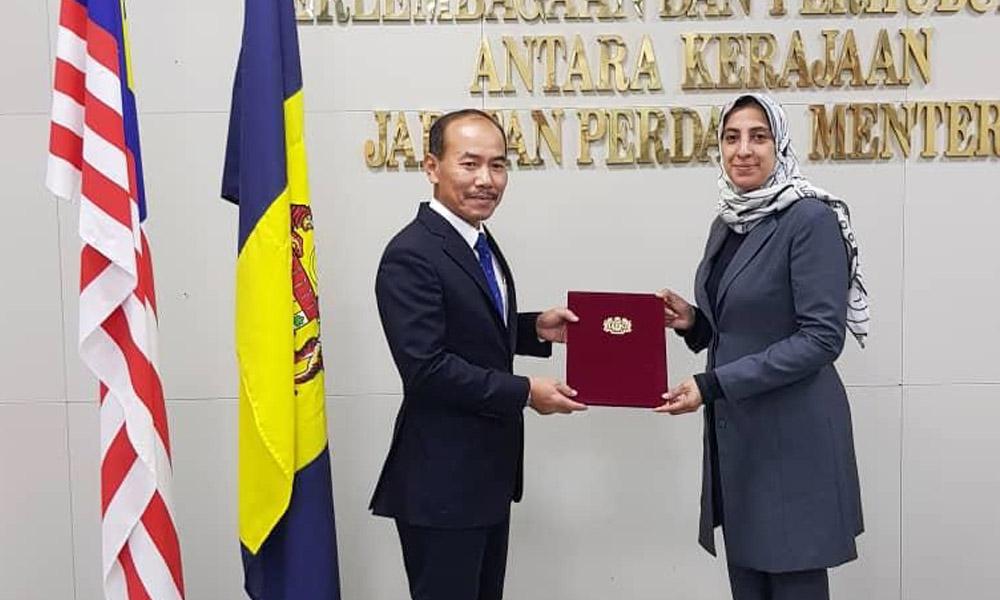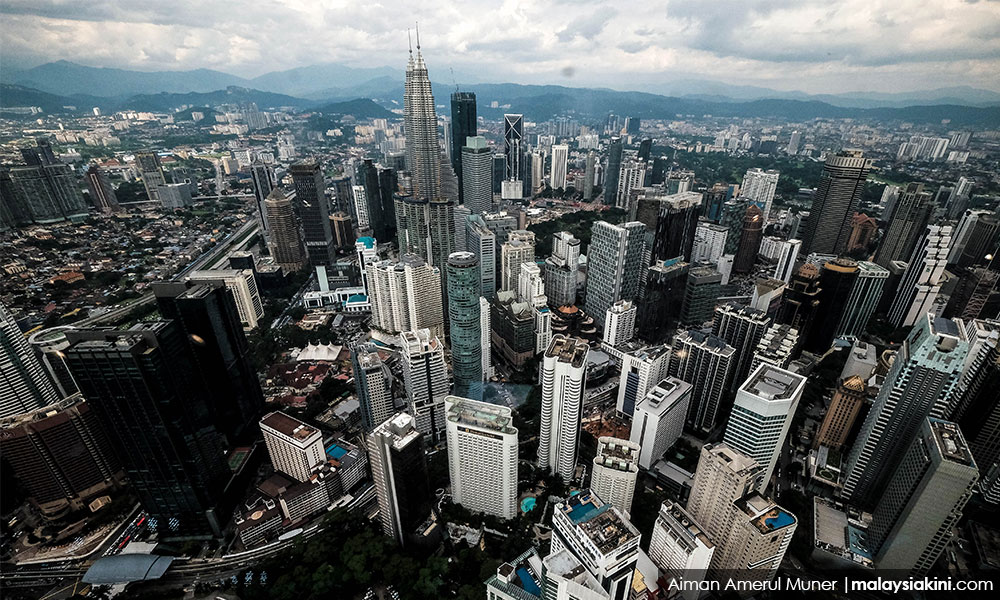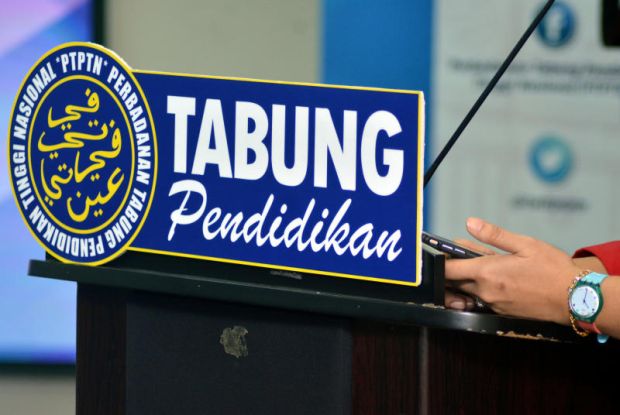
Published by The Malaysian Insight, image from Malaysiakini.
IT feels like people in our industry have been talking about little else beyond Latheefa Koya for about an entire week now.
The topic is so hot probably because of how it relates to the biggest meta question in Malaysian politics: who will succeed Dr Mahathir Mohamad as prime minister?
Latheefa is seen to be associated with the faction of PKR deputy president Mohamed Azmin Ali, who some say Daim Zainuddin wants to be the next PM instead of Anwar Ibrahim. This association is probably fuelled by Latheefa’s constant attacks on Anwar and all those in his camp over the past few years.
Today, we see even more clearly how the aftermath following Latheefa’s appointment as Malaysian Anti-Corruption Commission chief has brought to the fore several divisive fault lines in Malaysian politics and civil society.
For the latter, especially, this controversy may be an occasion for some soul-searching.
The highly respected G25 released a statement on the appointment, essentially arguing that, yes, the process was flawed and not ideal, but should be welcomed and celebrated because it “should be seen as an exceptional circumstance”.
The group also stated that the appointment was justified because “after all, these are a means to an end” – “matlamat halalkan cara”, in other words.
Perhaps it is just me, but aren’t these exactly the type of arguments that almost invariably begin a slide down a slippery slope?
The message here seems to be, we believe in principles and institutional reform, but we can overlook these things – and vigorously justify doing so – as long as people we like are placed in positions of power.
It was also argued that the post needed to be filled immediately, as if the former chief commissioner had suddenly resigned and left MACC in the lurch.
Given the optics, I think the public can be forgiven for thinking that it was Latheefa’s appointment that prompted the timing of her predecessor’s resignation, and not the other way around.
Who determines who is morally upright?
G25, though agreeing that the appointment process was flawed, said we must “see the bigger picture” because Latheefa is a “morally upright” person who will enforce the law fairly, “irrespective of her previous political inclinations”.
It doesn’t seem likely that the group would be as forgiving of “previous political inclinations” if, say, Najib Razak had appointed, say, Muhammad Shafee Abdullah as MACC chief. Perhaps, G25 would argue it was because Shafee was not a “morally upright” person.
Without institutional safeguards and transparent due process, however, it seems like we are being asked to take the word of 25 people – who no doubt have sterling reputations – in believing who is “morally upright” enough for public office.
Another oft-repeated argument is that Latheefa’s appointment was 100% legal, and 100% within the purview of the law. I agree completely.
I also agree that every police investigation under the Sedition Act since the 14th general election is 100% legal and 100% within the purview of the law. Does that make it right?
I think Malaysian civil society, more than most, has traditionally had strong views regarding how unjust laws and legal technicalities are poor defences for wrongdoing.
As a politician, Lim Kit Siang opined that the move to appoint Latheefa was legally correct, but politically wrong. Would civil society not have a similar responsibility to have consistent views regarding what is ethically right or wrong?
Selective accountability for the manifesto?
The Pakatan Harapan manifesto states: “The appointment of MACC commissioners must be validated democratically by Parliament.”
When Dr Mahathir wanted to assume the post of education minister, civil society was up in arms – precisely because this violated the PH manifesto.
So, do we pick and choose when to be indignant when the manifesto is violated, and when not to be indignant, based on how much we like the people involved?
This section of the PH manifesto is based on the idea that checks and balances are important, so that people in power do not use their discretion alone to appoint those they like to positions of power, to serve at their pleasure.
It was precisely this discretion that allowed people like Najib to install puppets as the attorney-general, MACC chief commissioner and so on.
Are we to believe now that things are different only because Dr Mahathir and Latheefa are “people of integrity”?
In terms of institutional strength and objective assessments, does it make a difference if 20% of the public subjectively believes in this integrity, or 80% of the public subjectively believes so? If it did, then the media – as influencers of who has integrity and who does not – would be the true kingmakers in the country.
Besides one vote in one general election held only once every five years, is there any democratically accountable way of ascertaining the integrity of not only Dr Mahathir and Latheefa, but all their successors as well?
Genuine check and balance?
The formation of the Parliamentary Select Committee (PSC) on Public Appointments was a step towards this direction. The idea was that, democratically accountable parliamentarians would play a role in providing checks and balances, instead of letting any one individual unilaterally appoint whoever he or she liked to major positions.
Regarding Latheefa’s appointment, Dr Mahathir appears to have openly admitted that not only did he not consult the committee, but he did not consult the cabinet either.
The message, thus, seems to be: yes, we will use the PSC (and the cabinet, apparently) as a check and balance, but only when we feel like doing so, and when it suits us. Oh, and we will not be bound by anything they say.
A “check and balance” that is used only as and when the executive feels like it is very much no check and balance at all.
Some point the finger not at the executive, but the slow pace of reforms. Unless I’m very much mistaken, however, it is that very same executive that is responsible for the pace of reforms.
If the pace is slow, one is left to conclude that there is far too little political will or interest on the part of the executive in genuinely pursuing reforms that would curb their own power.
It leaves the impression that everyone is all for reform and checks and balances, until such a point where they (or the people they like) are the ones whose powers are restrained by the said reform and checks and balances.
The position of the MACC chief is particularly relevant as the East Coast Rail Link project is soon to begin, opening questions of how the billions of ringgit that will come in as a result will be distributed.
Avoid getting personal
Malaysia’s representative to the Asean Intergovernmental Commission of Human Rights penned a passionate defence of his former colleague Latheefa, in which he makes many of the arguments listed above, including emphasising how her appointment was 100% legal.
The said representative is a stand-up guy, and is entirely within his right to share his views and opinions. But to do so in his capacity as a human rights representative to Asean – an ambassador-level position – seems somewhat irregular, and a further blurring of institutional propriety.
A number of individuals have taken umbrage at personal attacks against Latheefa, and they are right to do so.
Anwar-aligned PKR Youth vice-chief Syed Badli Shah Syed Osman called on Latheefa to “resign if she has any dignity left”.
This type of political and partisan polemic is wholly unnecessary, smells of a personal attack, and (somewhat ironically) has no place in dignified public discourse. Latheefa herself, it can be said, is no stranger to being either on the receiving or giving end of such attacks.
That particular part of her history is not wholly irrelevant to the debate surrounding her, given that it has earned her a reputation as a highly partisan and divisive individual – which may, in turn, bog down her work with near constant accusations (whether justified or not) of being biased one way or another.
Animal Farm
Long after Dr Mahathir, Latheefa and even the rest of us are gone, there will still be a prime minister, an MACC chief commissioner, Parliament and so on – or some version thereof.
The question is, what kind of prime minister, MACC chief, Parliament and so on will we have? Will we still have the same feudal power structures, where one’s political “kiblat”, or loyalties, remain a prominent factor, or will we have structures built on principles and institutional strength, governed by robust checks and balances?
The seeds of the answer to that question are planted not tomorrow, but today.
Some of the individuals and organisations mentioned above sometimes give the impression that the worst thing in the entire world that can happen is for Umno-Barisan Nasional to come back into power.
They seem to buy into this idea that any criticism of today’s government only weakens it, and makes it vulnerable to being replaced by external bogeymen.
I fully agree that a return to an era where Malaysia is ruled by the same type of predatory kleptocracy it has experienced for decades is, indeed, one of the worst things that can happen.
Let us not forget, however, the lessons of Animal Farm and The Hunger Games – that fearmongering about external “enemies” can often blind us to the very clear and present danger of the exact same rot growing from within.
If we start compromising our own principles out of some (sometimes manufactured) fear of an external other, we will, to paraphrase Obi Wan Kenobi, become the very thing we have sworn to destroy.
Nathaniel Tan is Director of Media & Communications at EMIR Research, an independent think-tank focused on strategic policy recommendations based upon rigorous research.

